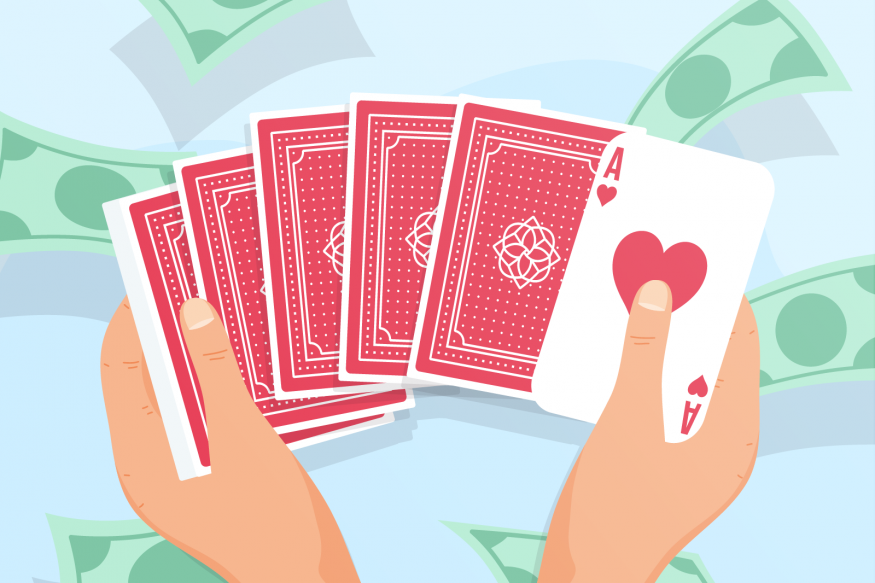Become Your Own Casino: Mastering Card Games That Give You the Edge

Card games offer unique opportunities for everyday players to gain a measurable advantage over time.
Unveiling Easy Card Propositions With a Built-In Advantage
Stepping into the world of casino games usually means playing against the house-but what if you could be the one with the mathematical edge? Through clever card propositions, you can tilt the odds in your favor, even during casual rounds of poker, gin, or other games.
Understanding just how much even a small advantage can impact long-term results lets you recover losses or secure extra wins amongst friends. The techniques outlined here aren’t scams; they’re authentic games with subtle but significant probabilities working for you-provided you use them fairly and responsibly.
Many of these propositions revolve around counterintuitive odds that confuse most casual players. If you can entice others to join your game, you’ll often find yourself becoming the “house” at your own personal table.
Seven Card Monte: A Card Game With Hidden Odds
A classic card challenge, Seven Card Monte, combines simplicity with a strong house edge-if you know how the probabilities work.
Here’s how to set it up:
- Request five face cards (King, Queen, or Jack) and two spot cards (from 2 through 9) from any deck.
- Mix these seven cards thoroughly on the table.
- Invite your opponent to turn over three cards, one at a time.
- If they reveal three face cards, they win; if any turned card is a spot card, they lose.
At first glance, players may believe their odds of winning increase with each turn - first five out of seven, then four out of six, then three out of five. But in reality, the chance of picking three face cards before encountering a spot card is less than it seems-over two to one against them.
What gives this game its bite is that most people assume their chance is better than it actually is. This mathematical edge will pay off over time as long as the cards remain unmarked. (Be alert for anyone trying to recognize or mark key cards-a known tactic among some seasoned players.)
A more deceitful version swaps out one of the face cards for a third identical joker, making the odds nearly impossible to overcome. This method, rooted in deception, crosses into fraudulent territory and should be avoided.
Three Cut: Outsmarting Expectations
In the Three Cut card proposition, you can use basic social engineering to pull ahead. The setup is simple:
- Shuffle the deck and cut it into three piles.
- Wager that none of the top cards of the three piles are face cards.
Most people reason, erroneously, that because only a quarter of the deck consists of face cards, your bet is safe. Flip the proposition and instead bet that at least one pile will have a face card on top-without changing the setup. This reversal turns the odds heavily in your favor.
Skilled hustlers have exploited this with specially trimmed court cards-edges shaved just enough that, when cut, face cards almost always surface on top. This manipulation ensures the hustler’s advantage and amplifies their winnings.
Even without such modifications, this challenge works with four piles and printable odds still in your favor, especially when guiding the conversation to mislead the other players about the true probability.
Quick Card Prop Bets: Simple Setups, Significant Returns
Proposition bets with playing cards are easy to learn, quick to execute, and surprisingly effective:
- Ask your opponent to name any four of a kind (for example, all fours).
- Shuffle the deck and have them deal 32 cards face up from any part, without peeking.
- If all four cards of their chosen value turn up, they win; otherwise, they lose.
Most players overestimate their chances, making this a profitable wager. If they lose, increase their chances slightly-deal 39 cards instead of 32-and their confidence will grow, but the odds are still against them.
Other engaging options:
- Divide the deck into two equal piles, then simultaneously turn over a card from each pile. Bet on whether a matching pair (same value and color) will appear together-this is more likely than most expect and again gives you the statistical advantage.
- Have someone name any two distinct card values, shuffle the deck, and spread it face up. If the two named values appear together anywhere, the player loses. With random dealing, it’s less common than players expect.
These quick, skillful challenges are perfect between rounds of standard games, letting you become the house and enjoy casino-like advantages wherever you play.
Make the Most of Your Edge: Fair Play and Responsibility
Card hustles like these teach the importance and impact of a small edge-one that grows over repeated play. Use these methods in good fun, and always disclose the nature of the challenge if significant money is involved.
If you’re interested in expanding your arsenal, consider looking into other games with similar built-in advantages, such as dice hustles and coin tricks. Understanding the mathematics and psychology behind each proposition is your best weapon when it comes to becoming your own casino.
For related strategies and new propositions, explore early installments in this series on dice hustles and coin tricks to further develop your toolkit as a savvy game host.













